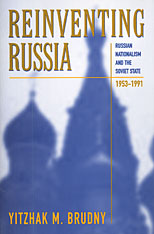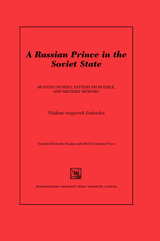
What caused the emergence of nationalist movements in many post-communist states? What role did communist regimes play in fostering these movements? Why have some been more successful than others? To address these questions, Yitzhak Brudny traces the Russian nationalist movement from its origins within the Russian intellectual elite of the 1950s to its institutionalization in electoral alliances, parliamentary factions, and political movements of the early 1990s.
Brudny argues that the rise of the Russian nationalist movement was a combined result of the reinvention of Russian national identity by a group of intellectuals, and the Communist Party's active support of this reinvention in order to gain greater political legitimacy. The author meticulously reconstructs the development of the Russian nationalist thought from Khrushchev to Yeltsin, as well as the nature of the Communist Party response to Russian nationalist ideas. Through analysis of major Russian literary, political, and historical writings, the recently-published memoirs of the Russian nationalist intellectuals and Communist Party officials, and documents discovered in the Communist Party archives, Brudny sheds new light on social, intellectual, and political origins of Russian nationalism, and emphasizes the importance of ideas in explaining the fate of the Russian nationalist movement during late communist and early post-communist periods.

In his letters from exile, Trubetskoi describes his grim situation in Central Asia-how he snatched moments to write between mornings playing piano in a ballet studio and late nights in a restaurant band, struggling with the heat, the insect-borne illness, and the problems of a large, uprooted family. His memoirs of 1911-12, "Notes of a Cuirassier," are the culmination of his efforts and they convey in vivid detail the glittering prewar world of an elite Russian Guards regiment. These reminiscences as well as his stories offer a glimpse of what life was like for a citizen of Imperial Russia who tried to make a life for himself in the new Soviet state. Instructive, amusing, moving, Trubetskoi's stories are also an inspiring example of how a person of grace and true nobility meets large-scale social and political upheaval.
READERS
Browse our collection.
PUBLISHERS
See BiblioVault's publisher services.
STUDENT SERVICES
Files for college accessibility offices.
UChicago Accessibility Resources
home | accessibility | search | about | contact us
BiblioVault ® 2001 - 2024
The University of Chicago Press









